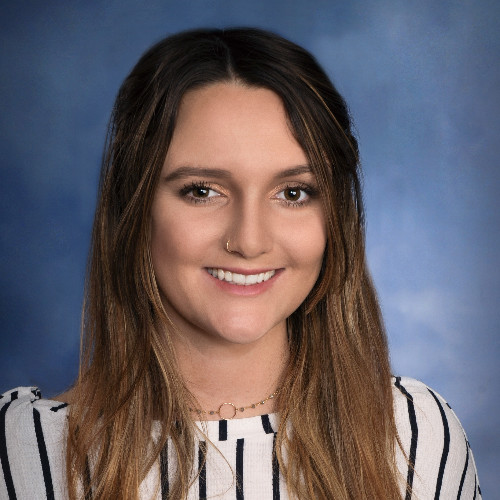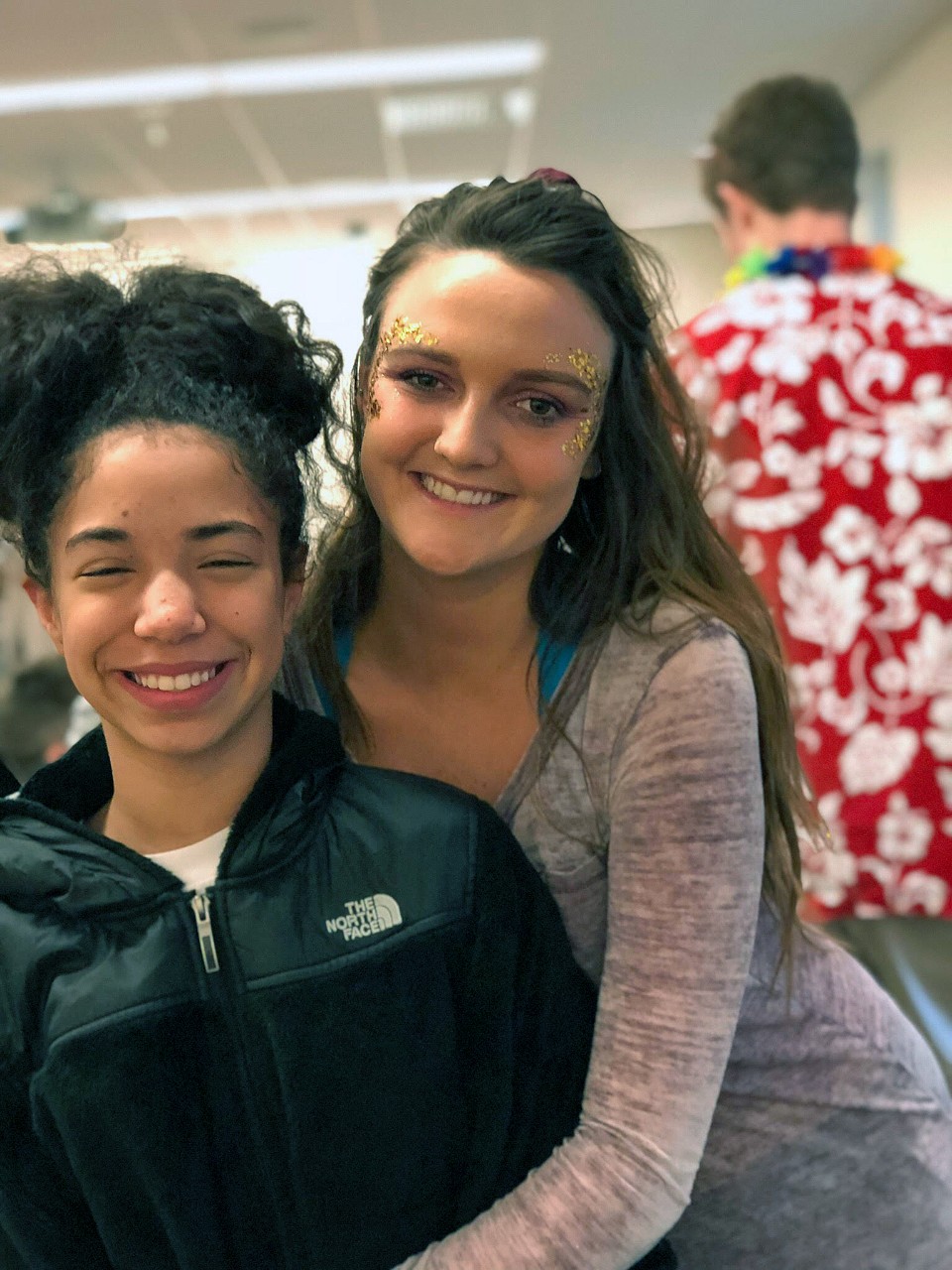Isabelle Stone, a 2018 alumna whose Boston College experience inspired her interest in the social justice and public policy dimensions of economics, has been selected for a Rhodes Scholarship.
The coveted post-baccalaureate award, which honors students on the basis of such qualities as high academic achievement, personal integrity, and leadership potential, will enable Stone to study at Oxford University for upwards of three years. Stone, who grew up in Bermuda, is the third BC graduate to earn a Rhodes, and the first since Brett Huneycutt ’03 and Paul Taylor ’04 were both chosen in the fall of 2003.

Isabelle Stone '18 is third Boston College graduate selected for a Rhodes Scholarship
As a BC undergraduate, Stone majored in economics with minors in philosophy and Faith, Peace, and Justice. She was a member of the Phi Beta Kappa and Alpha Sigma Nu honor societies, as well as the Omicron Delta Honor Society for students with outstanding achievement in economics, and made the Dean’s List with first honors every semester from 2015-18. Complementing her academic excellence was a devotion to community service, notably at the Casa Nueva Vida homeless shelter in Boston’s Jamaica Plain neighborhood—where she developed a friendship with a homeless girl that continues to this day—and through participation in the University’s Best Buddies program, which pairs BC students and persons with intellectual and developmental disabilities.
She also was a member of the BC chapters of Model United Nations and Americans for Informed Democracy, and worked at the University’s radio station, WZBC.
“All of Isabelle’s faculty at Boston College are proud of her latest achievement,” said Provost and Dean of Faculties David Quigley. “I’m especially pleased to see how important her PULSE program placement at Casa Nueva Vida turned out to be, as she excelled in the classroom and beyond in her undergraduate years. This economics major/philosophy and Faith, Peace, and Justice minor exemplifies the very best of this generation of BC undergraduates.”
Stone sees her Rhodes Scholarship as an outcome of the personal and spiritual formation she underwent at BC.
“I feel as if it’s all come together for me, starting with my decision to go to BC,” said Stone, who hopes to continue her economics studies at Oxford. “I came with the idea of getting a high-paying finance job, but I got swept up in BC’s Jesuit ideals of social justice and giving back to the community. I really liked how I was able to have an interaction between my service work and my academic work. They had been separate in my life before, but now I was able to write and talk about something for which I had a great passion.
“The Rhodes just seems like a perfect fit: They want your academic work to integrate with your passion to fight the world’s fight, live a politically active life, and advocate for those who are marginalized.”
Even as BC helped broaden her view of the world, Stone found her gaze focusing on her home country, and the social and economic inequality that profoundly limit opportunities for so many Bermuda citizens to improve their lives. She also discovered, in conversations with Bermuda’s leading economists, how little research existed on the Bermudian economy and its relation to race.
“I feel as if it’s all come together for me, starting with my decision to go to BC. I came with the idea of getting a high-paying finance job, but I got swept up in BC’s Jesuit ideals of social justice and giving back to the community. I really liked how I was able to have an interaction between my service work and my academic work. They had been separate in my life before, but now I was able to write and talk about something for which I had a great passion.”
Her sojourn at Oxford, then, will not simply be for personal enrichment, according to Stone: She seeks to be part of a generation of young Bermudians that will bring their knowledge and proficiency to bear on solving the country’s problems.
“Oxford, with its intensive tutorial system and degree programs that are tailored to your interests, will be the perfect place to do this research and use it to help in advocating for policies and programs that address the inequities in Bermudian life which stem from its colonial past,” she said.
Stone is grateful to BC faculty members who prompted her to seek new pathways and connections in her academic and personal interests, such as Kathleen Hirsch, a part-time faculty member in philosophy.
“Kathleen had a huge impact during my sophomore year, as I was making the transition from being a math major who was planning to go into finance. During our PULSE class, we did a few essays based on education or health policy in the U.S. She helped me to see that my analysis really worked with big-picture public policy; nobody had ever pointed that out to me before. So from there I took some public policy courses in my economics major and I realized how much I enjoyed that.”
Stone also cites Economics Associate Professor of the Practice Paul Cichello, whose expertise in development policy stimulated her interest “in being able to see how we can use statistics, regression analysis, and other analytical tools to look at the effect that legislation has on people’s everyday lives—these are the sort of things that will come in so handy at Oxford, and especially doing my own research.”
Said Cichello, “Issy combines a compassionate heart with an intellectually curious and rigorous mind, and an easy-going spirit eager for fun with a strong determination and will to change the world for the better. She's willing to openly share her ideas. I think she'll be an effective leader for positive change in the lives of others.”
“Having seen the difference one’s actions can have on somebody’s life, I want to be able to do something that has a macro impact: Maybe put forth a policy that provides additional benefits to struggling families so their kids will be able to attend and succeed in school, or that subsidizes shelters like Casa Nueva Vida so they can continue to provide help to those in need.”
The Challenge of Justice class taught by Matthew Mullane, a faculty member in the Faith, Peace, and Justice program, was another foundational experience, she said: “In Bermuda, there isn’t a great desire to go into public service life because it’s not as lucrative as the financial/business sector. Losing so many of these ‘best brains’ to that sector has had a negative effect on participation in public service. Professor Mullane’s class really opened my eyes and made me realize that, if I were to become financially successful and start or just support a charity—as a lot of people do—I wouldn’t be getting to the root of the problems in Bermuda. The person you’re giving the charity to will be at your door the next day; with effective public policy, you can make sure that person isn’t at your door in the first place.”
But seeing the impact of inequality up close and personal, such as through her service with Casa Nueva Vida, has been equally, if not more meaningful than reading and discussion. Stone’s primary duties involved providing tutoring for school-age children—mostly from Spanish-speaking, immigrant families—in the shelter and supervising recreational activities. She became close to one family, and in particular their daughter Tiffany, and when the family moved out of the shelter she maintained the bond, inviting Tiffany to campus to experience college life and to attend sports events with Stone and her roommate.

Isabelle met Tiffany at Casa Nueva Vida; the two are still friends today.
“Now, Tiffany really wants to go to BC, and this is such a huge contrast from when we first met," Stone said.
"Having seen the difference one’s actions can have on somebody’s life, I want to be able to do something that has a macro impact: Maybe put forth a policy that provides additional benefits to struggling families so their kids will be able to attend and succeed in school, or that subsidizes shelters like Casa Nueva Vida so they can continue to provide help to those in need.
“Seeing the disparity between what most of the Boston College community grew up with and what families just 15 minutes away in Jamaica Plain are going through, adding to what I studied in my classes, has made me want to combine the big-picture approach of economics with the care and concern for the individual that’s at the heart of Jesuit education.”
Sean Smith | University Communications



